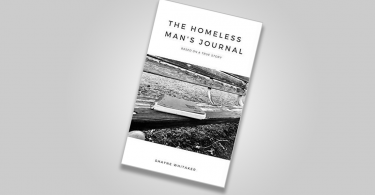“The cradle rocks above the abyss, and common sense tells us that our existence is but a brief crack of light between two eternities of darkness.” So begins the stupendously talented autobiography of the greatest literary magician of the twentieth century. Speak, Memory is an account of the first half of Vladimir Nabokov’s life, and it pains me more than I can say to know that he died before he could write its second (American) half. He is most famous for having given birth to Lolita, but he deserves equal, if not more, praise for other masterpieces such as Pale Fire, Despair and the autobiography under consideration here.
It should be a truth universally acknowledged that an artist’s work is always more important and revealing than his life. Yet, in this book Nabokov managed to fuse the spooky art of fiction, with its coherent, recurring themes that spring out of any accomplished work of the imagination, with the malleable reality of actual times gone by. In doing so he has crafted an autobiography (a literary version of his sublime crack of light) that itself suggests a curious and special relationship between life and art. If this sounds needlessly convoluted, it is because his achievement (using only words as tools) was to simultaneously illuminate and obscure everything.
The Russian Years
Born into tremendous wealth in 1899 in pre-revolutionary Russia, his father was a leading member of the Constitutional Democratic Party whose political engagement did not transmit to the young Vladimir. Instead, Nabokov’s childhood was spent chasing butterflies and absorbing poetry. The thrill of his daily butterfly hunts led to a lifelong obsession; he was an amateur lepidopterist who published important papers during his time in America, and he devotes an entire chapter to his passion for them. Literary royalty was rarely far away due to his well-known parents; in fact Nabokov and his father once briefly chatted to an elderly Leo Tolstoy on a street corner.
This is how he sums up his voracious childhood reading: “Between the ages of ten and fifteen in St. Petersburg, I must have read more fiction and poetry—English, Russian and French—than in any other five-year period of my life. I relished especially the works of Wells, Poe, Browning, Keats, Flaubert, Verlaine, Rimbaud, Chekhov, Tolstoy, and Alexander Blok … In other words, I was a perfectly normal trilingual child in a family with a large library.”
Perfectly normal! He also enjoyed several teenage dalliances with young girls, and it is clear from the tenderness of his descriptions that these left an unusually strong impression on him. It is, a little disconcertingly, difficult not to see in them the precursors of the girl who would later make him famous: Lolita. He was at this point already filling his notebooks with love poems full of the anguish and pain of loss, but his tender and nostalgic descriptions of nearly every aspect of his youthful years act as footnotes to his admission that, “I probably had the happiest childhood imaginable.”
When the Bolshevik’s seized power during the 1917 October Revolution however, Nabokov and his family were forced to flee, leaving behind his sizeable inheritance, his large estate, and the land that furnished him with his most cherished memories. He would never return to Russia and, after a sojourn in the Crimea, won a scholarship to study at Trinity College, Cambridge.
In Exile: Cambridge, Berlin and Paris
At Cambridge he spent a little time on zoology (his degree of choice, though he later switched to Slavic languages) and a lot of time pursuing the amorous experiences that he felt to be essential for a future litterateur. He was very successful on this front, and must have been quite the flirt. In a swift change of tone, Nabokov then moved to Berlin, shortly after which his father was assassinated by a bullet meant for another politician.
It is fortunate for him that a more desirable occurrence took place soon afterwards and, though the details are uncertain, it seems likely that in 1923 (in Berlin) Nabokov met Vera Slonim. This was likely at a charity ball, and she may, as Nabokov claimed, have even been wearing a black satin mask – all of which was suitably romantic, in the least sentimental sense of the word, for our author’s imagination. They would enjoy half a century of marriage, for which we should all be thankful, as Vera would later save the manuscript of Lolita from the flames after Nabokov had resolved to burn it to avoid controversy. He chose to leave out of this autobiography his delirious affair with a Russian émigrée called Irina Guadanini. This may have something to do with the fact that Vera was not only his wife, but also his translator and editor; it may have been a little awkward. I note in passing that I suspect that he had several other affairs that have been lost to history.
You may think that uprooting your existence to flee from one oppressive regime would be enough for any lifetime, but the rise of another cult of nihilism in 1930s Germany forced Nabokov and his Jewish wife to move first to Paris and then, when the Nazis marched behind as if in pursuit, to America. The autobiography ends with this transatlantic voyage.
Literature – The spine’s tingle
Despite running from two murderous regimes, Nabokov never had any serious interest in ephemeral political concerns, preferring instead the, as he thought, loftier and more timeless pursuit of literature. He once said that, “A work of art has no importance whatever to society. It is only important to the individual,” and he believed in art for life’s sake. There is, however, a strong streak of anti-totalitarianism and anti-cruelty that underlines nearly every one of his novels, the most obvious examples being Lolita, Invitation to a Beheading and Bend Sinister.
Nabokov said elsewhere that, “A wise reader reads the book of genius not with his heart, not so much with his brain, but with his spine. It is there that occurs the tell-tale tingle.” His enhanced sensitivity to the written word (which might have had the compensatory effect of numbing his response to music, an art form for which he professes distaste in this book) may perhaps be explained with the help of Nabokov’s self-diagnosis of synaesthesia. He called his condition “coloured hearing,” and it resulted in a clustering of colours and letters that allowed him to write such sentences as, “I am puzzled by my French on which I see as the brimming tension-surface of alcohol in a small glass.” He may have disliked music, but it is striking that the poetry in his prose is rarely at risk of being called ‘purple’.
Lean back and bask in this brief paragraph in which he attempts to identify the source of his genius: “Neither in environment nor in heredity can I find the exact instrument that fashioned me, the anonymous roller that pressed upon my life a certain intricate watermark whose unique design becomes visible when the lamp of art is made to shine through life’s foolscap.”
He clearly had grander ambitions for his fiction than the production of a sequence of well-wrought sentences, and the almost Proustian mining of his own past reflects his perennial obsession with memory and nostalgia, as well as the relationship between the two. I often wonder how much solace he extracted from this constant act of looking back, and whether or not he would have agreed with John Clare, who said that, “Ah, words are poor receipts for what time hath stole away.” The most vital and essential of the personality traits that allowed him to pursue these obsessions was an unashamed and unapologetic independence of mind. You can only admire a man who was so confident in his own personal conceptions of space and time that he felt able to say, without irony: “While not having much physics, I reject Einstein’s slick formulae.” This streak of independence also explains his contempt for all groups, herds, conventions and consensus views.
After the release of Lolita, Nabokov gave a rare interview on the show “Close Up”.
Apart from giving us readers an opportunity to see Nabokov moving and talking in the flesh (his domed, suitably capacious head frames the eyes that dance behind refractive spectacles), there is one moment of special interest. The literary critic Lionel Trilling says, at 2:44, “You can’t trust a creative writer to say what he has done”, which Nabokov replies to with a knowing grin. He was a master of publicising himself, and his public utterances are at odds with the actual man and the purpose of his work. Speak, Memory strove to identify and give playful expression to, after the fact, key themes and currents in his life. In short, the achievement of Nabokov was to show that play and humour are the only answers to the question: What does it all mean?








